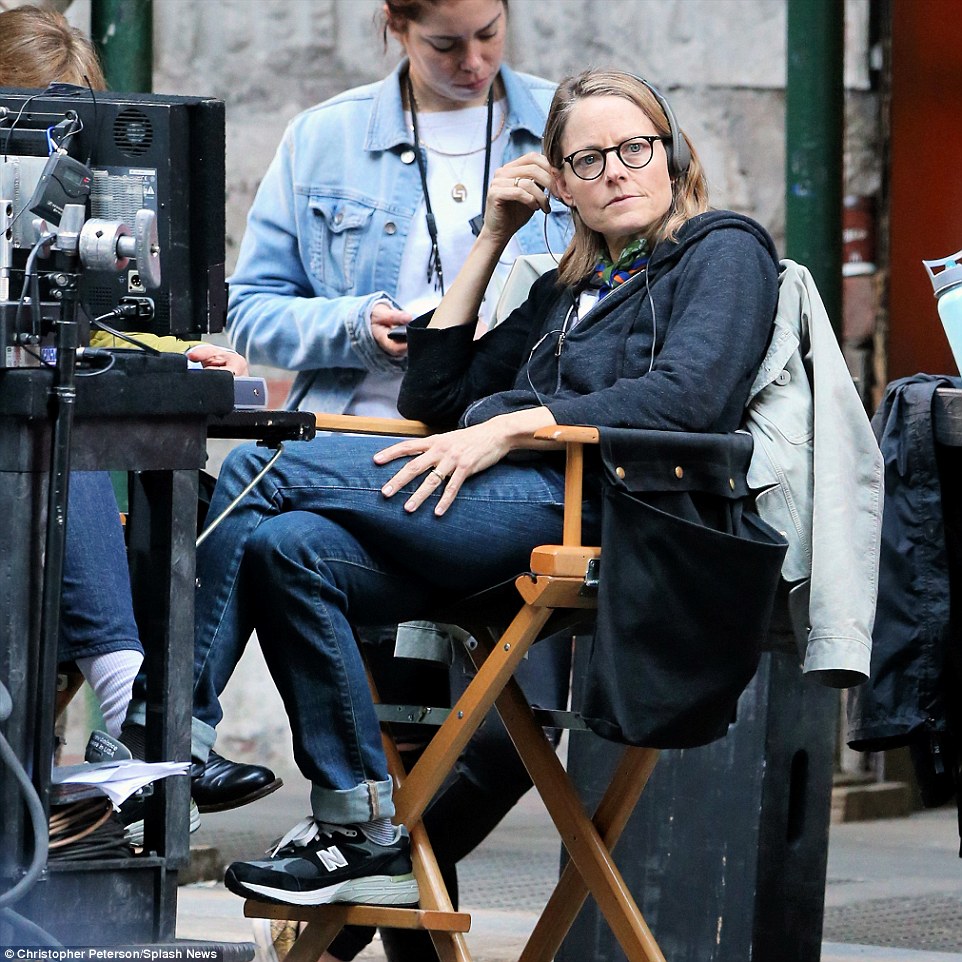As of 05:21 PM +07 on Friday, June 27, 2025, Hollywood icon Jodie Foster has ignited a significant conversation about gender disparities in the film industry, offering a candid perspective on why women directors remain underrepresented and advocating for them to push their own boundaries. In a series of recent interviews and public appearances, the two-time Academy Award-winning actress and filmmaker has peeled back the layers of a long-standing issue, challenging both industry norms and the women within it to step up. Her insights, rooted in her six-decade career, come at a time when the industry faces scrutiny over diversity and representation, making her call to action a pivotal moment for aspiring female directors and a critique of Hollywood’s entrenched dynamics.
A Career Spanning Decades
Foster’s journey in Hollywood spans from her child acting debut in the 1960s to her acclaimed directorial work, including Little Man Tate (1991), Home for the Holidays (1995), and Money Monster (2016). Her own path to directing was unconventional, breaking through barriers when few women held such roles, a reality she reflected on during a 2024 Variety Studio interview at Sundance. “I’ve been in this business since the ’60s, ’70s, ’80s, ’90s, and so on,” she said, noting the gradual shift in audience expectations that has begun to alter perceptions of marginalized voices. Yet, she emphasized that the progress is uneven, with women directors still facing systemic hurdles that trace back to deep-seated biases.
The Real Reason: Psychological Inertia
The core reason Foster identifies for the scarcity of female directors is not a deliberate conspiracy but a psychological and structural inertia. She has described it as a form of “race psychology” or “gender-biased psychology,” where studio executives, often male, instinctively gravitate toward directors who mirror their own experiences and perspectives. “When you give that amount of power up, you want them to look like you and talk like you and think like you,” she explained in a 2016 Tribeca Film Festival talk with Julie Taymor. This reluctance to cede control to those who differ—particularly women—stems from a fear of uncertainty, a sentiment she reiterated in a 2011 interview promoting The Beaver. Even female executives, she argued, have historically been complicit, prioritizing risk-averse decisions over championing new voices.
A Complex Cultural Challenge
Foster’s critique extends beyond executive bias to the industry’s broader culture. She has observed that the lack of female directors in mainstream cinema—where women accounted for just 13% of the top 250 films in 2024 according to recent studies—reflects a failure to challenge traditional models. In a 2016 Cannes Women in Motion talk, she argued that the conversation around gender parity is too simplistic, rooted in complex issues like psychology, finance, and global economics that span centuries. “It’s not as cut-and-dry as everybody thinks it is,” she said, rejecting the idea of a grand plot and instead pointing to a collective oversight that has perpetuated male dominance.

Personal Experience and Privilege
This perspective is informed by her own experience. As a young actress, Foster rarely saw women on set beyond makeup artists or script supervisors, a loneliness she described during the 2015 Athena Film Festival. Her breakthrough as a director came with the support of male mentors at Orion Pictures, who saw her as a “daughter” figure, a dynamic that highlights the reliance on personal connections rather than systemic change. “I had guys who knew me… The real pioneers are someone that didn’t have the ‘in’ that I had,” she admitted in a 2011 Los Angeles Times interview. This privilege, she acknowledges, set her apart from many women who lacked such advocates, underscoring the uneven playing field.
A Call to Self-Challenge
Foster’s call for women directors to challenge themselves adds a provocative layer to her analysis. In a 2025 Variety interview tied to her Cannes film Vie Privée, she urged female filmmakers to “adapt to what’s around you” and seek new mediums, drawing from her own shift to television with projects like House of Cards and True Detective: Night Country. She argued that waiting for Hollywood to open doors is insufficient; women must proactively invent their own opportunities. “Every story requires a new invention,” she said at Cannes 2016, advocating for adaptability over reliance on traditional paths. This stance challenges the narrative that external support alone will solve the disparity, pushing women to take risks and redefine leadership styles often misunderstood by male-dominated crews.
Supporting Through Example
Her support for this self-challenge is not just theoretical. Foster has praised peers like Greta Gerwig, whose $1.4 billion success with Barbie in 2023 demonstrated that women directors can helm major studio projects without being seen as risks. “They gave her the keys to the kingdom and all the money to support it,” Foster told Variety in 2024, expressing pride in this shift while acknowledging it took decades to reach this point. She also highlighted her collaboration with female directors on Nyad and Vie Privée, emphasizing the importance of centering stories from diverse perspectives, such as Native American narratives in True Detective. This aligns with her belief that representation must go beyond mere presence to authentic storytelling.
Mixed Industry Reactions
The industry’s response to Foster’s views has been mixed. Some applaud her for highlighting systemic issues, with sentiments on X noting her as a “voice of reason” in a male-dominated field. Others criticize her for downplaying intentional bias, arguing that her success with male support undermines her call for systemic change. Feminist critiques suggest her focus on personal initiative might shift responsibility from studios to women themselves, a tension she addressed by clarifying, “It’s not about blaming; it’s about action.” Her past defense of figures like Mel Gibson and Roman Polanski has also fueled debate, though she frames these as personal loyalties rather than industry endorsements.
Broader Implications
The broader implications are significant. Foster’s insights challenge Hollywood to rethink its risk-averse culture, potentially influencing studio hiring as diversity initiatives gain traction—though 2024 data shows only marginal improvement. Her urging of self-challenge could inspire a new wave of female directors to innovate, perhaps through independent films or streaming platforms, where women like Ava DuVernay and Dee Rees have thrived. However, without structural reform, the progress may remain slow, as Foster herself noted in a 2018 Variety Directors Roundtable, where she regretted not seeking female crew members earlier.
Conclusion
As of June 27, 2025, Foster’s words resonate amid ongoing discussions about gender in film, spurred by projects like Barbie and her own Vie Privée. Her call for women to challenge themselves, paired with her critique of Hollywood’s psychology, offers a dual path forward—personal agency and industry accountability. Whether this sparks a lasting shift or remains a call in the wilderness, it underscores Foster’s enduring influence as both a trailblazer and a provocateur in a field still grappling with its past.




